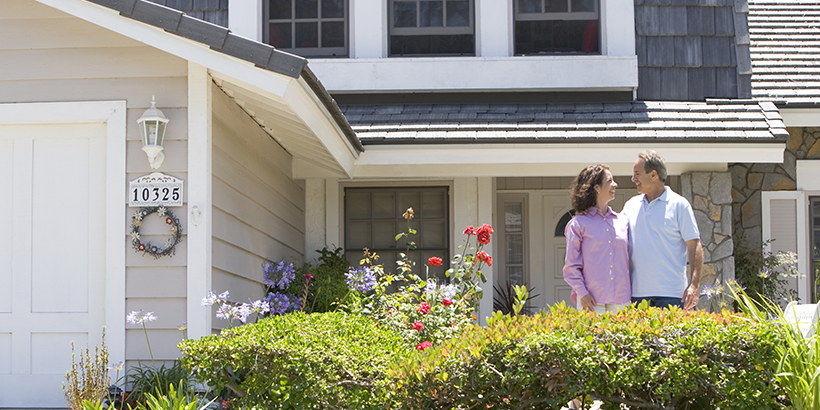When you refinance, you are applying for a new mortgage to replace your current one, which will result in a new rate, term and monthly payment. A refinance may be able to help you improve your financial situation — if you refinance at the right time.

There are several factors to consider when deciding whether refinancing is right for you right now.
When to Consider Refinancing
You may consider refinancing if any of these scenarios apply to you:
- Mortgage rates are lower than when you closed on your current mortgage. Locking in a lower interest rate will lower your monthly payment.
- Your financial situation has improved. You can secure a loan with a shorter term so that you can build equity and own your home sooner. Be sure to shop around for the best rate and term for your needs.
- Your adjustable-rate mortgage (ARM) is adjusting upward. Converting to a fixed-rate mortgage can provide you with the security of consistent payments.
How Mortgage Rates Affect Your Monthly Payment
The most common type of refinance is a no cash-out refinance, in which you are refinancing the remaining balance on your mortgage to a different mortgage rate and possibly a new term.
To understand how lowering your mortgage rate can affect your monthly payment, consider the following example: Refinancing a $300,000 outstanding loan balance into a 30-year fixed-rate mortgage at various rates.
| Mortgage Rate | Mortgage Monthly Payment* |
|---|---|
6.15% | $1,828 |
6.29% | $1,855 |
6.36% | $1,869 |
6.65% | $1,926 |
6.75% | $1,946 |
*Mortgage payments are principal and interest only, based on a $300,000 fully amortizing mortgage. All terms are assumed to be 30 years.
Even small differences in mortgage rates can have a big impact on your monthly payment. If mortgage rates are lower than when you closed on your current mortgage, refinancing could reduce your monthly payments and the total amount of interest you pay over the life of the loan.
The Costs of Refinancing
Although refinancing your mortgage could save you money, both in the long- and short-term, it isn't free. Just as you had closing costs and associated fees when you took out your current mortgage, there are refinancing costs.
The total cost to refinance your mortgage will be determined by your lender, your credit score and your location, but you can expect to spend 3%–6% of your loan principal. You should carefully consider how long you plan to stay in the home to ensure the savings from a refinance outweigh the costs.
Refinancing costs are similar to those paid when you purchased your home, including a loan origination fee. There are required services involved, as well as state and local fees that can vary based on where you live.
You should work closely with a lender to discuss refinancing options that fit your financial goals. You can refinance through your existing lender or a new lender. What's most important is that the lender you choose is trustworthy and offers competitive rates and terms.
Last reviewed: January 12, 2026
My Home in your inbox
Sign up to receive resources, tools and tips about buying, owning, refinancing, selling and renting a home in your inbox.